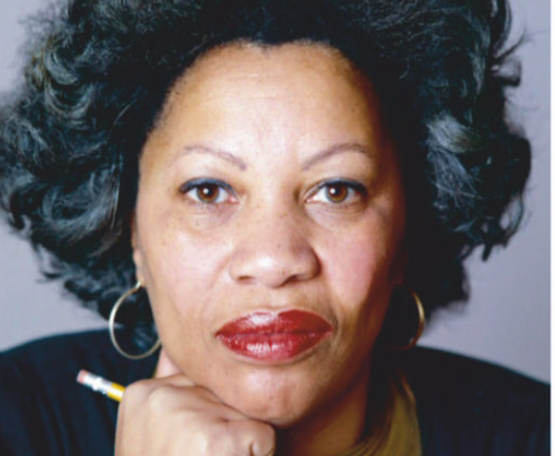Anger was not useful to dwell on. It was not creative. In interviews she suppressed it with steeliness, just as she guarded her words and herself from meddlesome intrusion. But she could explode at the craziness of racism, its distorting power, its pernicious notions of "purity", when the screaming red-mouthed baboon whites evoked lived under their own white skin.
老是生气是没有用的。那是没有创作力的。在访谈中她冷酷地克制着自己,就像她保护自己的话语和自己不受干涉一样。但是,当那些尖叫的红嘴狒狒在自己的白皮肤下生活时, 她会对种族主义的疯狂、其扭曲的力量和其有害的纯洁概念勃然大怒。
Disappointingly she found it even among blacks, with their talk of mocha, hazelnut, onyx, tar- and silt-black. There was such compulsion in human beings to classify by type and clan, to suspect and hate the other, to refuse to vault the mere blue air that separated them. If oppression was no longer by actual ownership or actual violence, then language could be used to do the job with some efficiency. Politicians, misogynists, lawyers all knew how. Who could rescue language, ensure it stayed supple, strong and alive? That it was unarrogant, and would keep reaching towards the ineffable? Women could. Black women could.
她失望地发现这甚至也存在于黑人之中,就在他们谈论摩卡,榛子,玛瑙,焦油和粉黑色时。在人类中,有一种通过类型和宗族来给人分类的冲动,来怀疑和憎恨其他种类的人,拒绝让那分隔他们的蔚蓝的空气消失。如果压迫不再是由实际的所有权或实际的暴力造成的,然后,语言可以被用来做一些效率的工作。政治家,厌恶女人的人,律师都知道怎么做。谁能拯救语言,确保它保持灵活、强大和鲜活?使它不是傲慢的,能够持续地达到言语不能描述的境地?女人能。黑人女性可以。

In her novels it was inevitably mothers, grandmothers, aunts, sisters who kept families and communities together with that mesh of loving bossiness: pull up your socks, comb your head, do your chores, hush your mouth. She'd done the same, raising two sons, fitting her writing into chinks in the endless round of work and domestication. In kitchens across the land black women stitched grey cotton, or poured soda into the crease of a palm to make biscuits. They brought order out of chaos, as her writing did.
在她的小说中,不可避免地是母亲、祖母、阿姨、姐妹用爱发号施令的网把家庭和社区维系在一起: 加紧努力,梳头,做你的家务,闭上你的嘴。她做了同样的事情,养育两个儿子,在无休止的工作和家庭生活中,她找到空隙来进行自己的写作。在全国各地的厨房里,黑人妇女缝制着灰色的棉花,或者把苏打水倒在掌心的皱褶里做饼干。他们在混乱中带来了秩序,就像她的写作一样。
译文由可可原创,仅供学习交流使用,未经许可请勿转载。













